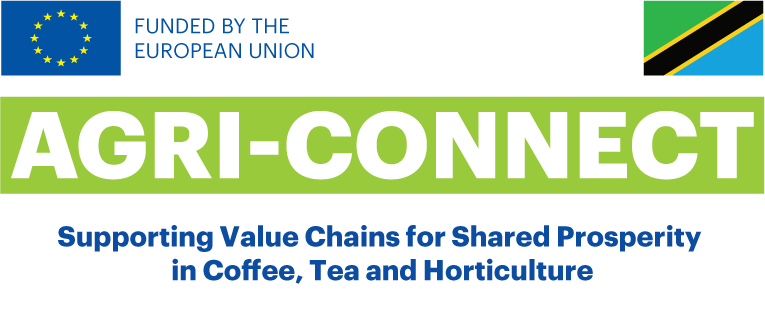
Public walk for food safety.
The Revolutionary Government of Zanzibar, the European Union and FAO lead a public walk for food safety to promote awareness and safe practices for a healthy community.
7th June 2023 – Following the successful launch of the national nutrition campaign in the United Republic of Tanzania, through the European Union (EU) funded AGRI-CONNECT flagship programme, the Food and Agriculture Organization of the United Nations (FAO), and the Revolutionary Government of Zanzibar joined hands to commemorate World Food Safety Day on June 7th, 2023. This global event serves as a crucial opportunity to raise awareness about the importance of safe and sustainable food systems, ensuring the well-being of people and the planet.
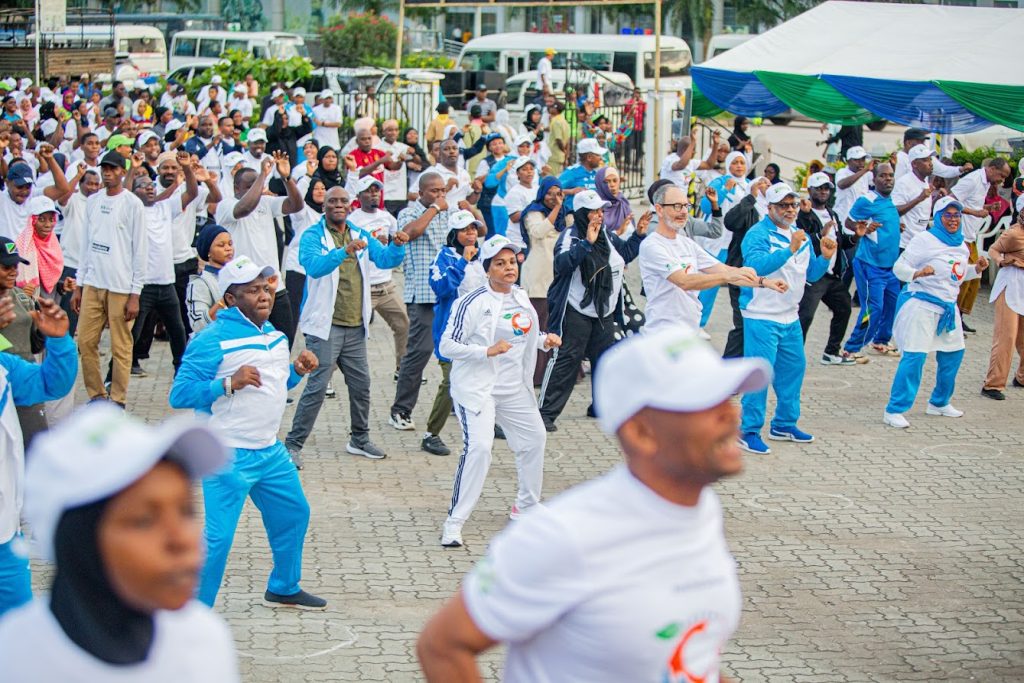
Under the theme “Food Standards Save Lives” and the slogan “Food Safety, Everyone’s Business,” the Ministry of Health, through the Zanzibar Food and Drug Agency (ZFDA), organized a 5 km public health walk for food safety. The event featured an engaging walk route through the heart of our community while fostering multi-stakeholder partnerships and collaboration to enhance coordination and cooperation in addressing food safety challenges.
Along the walk route, an educational programme with key messages based on this year’s theme was set up with public information on various aspects of food safety, including proper food handling, storage, and preparation techniques. Participants had the opportunity to engage with experts in the field of food safety, including representatives from local health authorities, food industry professionals, and community organizations. They gained invaluable insights into safe food practices, learnt about the importance of hygiene, and discovered methods to prevent foodborne illnesses.
The event was graced by H.E. Mama Mariam Mwinyi, founder and chair of Maisha Bora Foundation and First Lady of Zanzibar; H.E. Manfredo Fanti, Ambassador of the European Union to Tanzania and the East African Community; Mr. Charles Tulahi, Assistant FAO Representative in Tanzania; Hon. Nassor Mazrui, Minister of Health; and Hon. Shamata Shaame Khamis, Minister of Agriculture, Irrigation, Natural Resources, and Livestock. A diverse group of experts and stakeholders at Unguja, Zanzibar, attended.
“Malnutrition, coupled with physical inactivity and sedentary behavior, are among the leading risk factors for dietary-related Non-Communicable Diseases (DRNCDs), principally cardiovascular diseases, diabetes, cancers, and chronic respiratory diseases. Unhealthy diets and physical inactivity are prevalent in Zanzibar. Food safety is a critical aspect of public health, ensuring that the food we consume is safe, nutritious, and free from contaminants. With the increasing importance of safe food practices, we hope that bringing together community members, local businesses, and stakeholders in this public walk for food safety will raise awareness and promote best practices in food safety and healthy lifestyles. Food safety is everyone’s business ” said, H.E. Mama Mariam Mwinyi, First Lady of Zanzibar.

H.E. Mama Mariam Mwinyi, founder and chair of Maisha Bora Foundation and First Lady of Zanzibar.
“We recognize that dhemical agents such as mycotoxins and pesticide residues, biological agents such as vibrio cholera bacteria and entamoeba parasites, and physical agents such as broken glass and stones can all make food unsafe. Food safety is a major determinant of human health. Access to safe food is a basic human right. In Zanzibar, the Ministry for Health, through ZFDA, has the Standards Act mandated to control food safety issues. Unfortunately, the Standards Act does not include the infrastructure (particularly a multisectoral committee) needed for effective coordination of food safety and quality services (other than food standards setting). To commemorate the day, Tanzania is urged to adopt the FAO and WHO recommendations to improve the coordination of food safety control services in the country,” said Hon, Nassor Mazrui, Minister of Health Zanzibar.
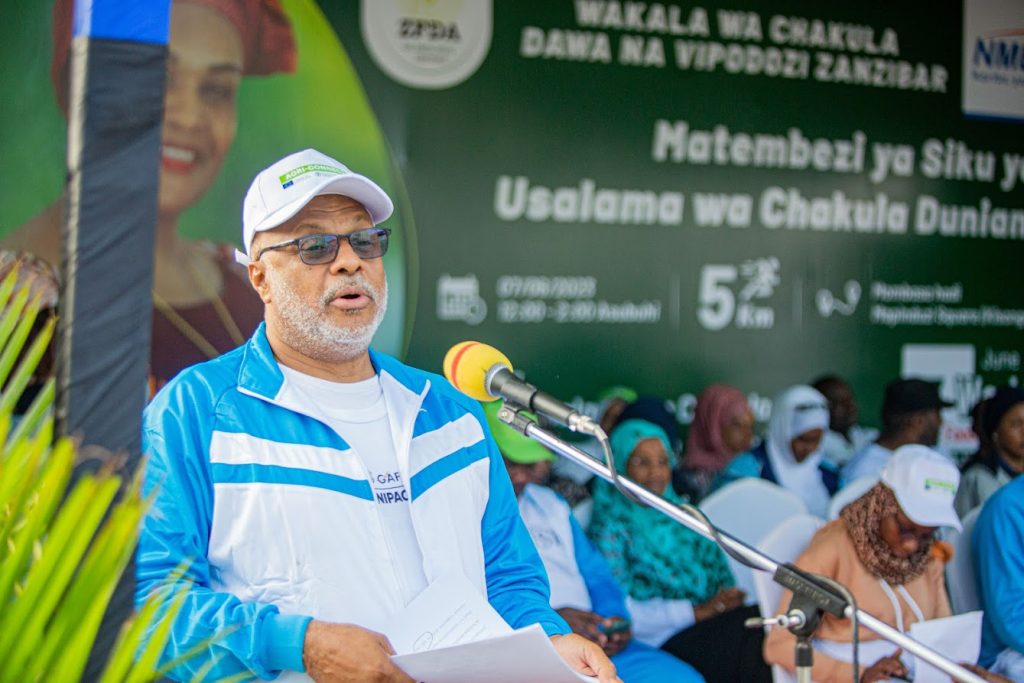
Hon, Nassor Mazrui, Minister of Health Zanzibar.
“Ensuring safe food from farm to fork is central to the EU’s food safety policies and a pre-condition for food trade, at home and abroad. This project responds to a well -rounded approach where citizens are involved in adopting nutritious diets and healthy lifestyles, irrespective of their incomes, as well as broadens to national distribution and market systems of safe food. At a time of increasing global food insecurities, every effort to ensure availability of safe and healthy food is vital,” said H.E. Manfredo Fanti, Ambassador of the European Union to Tanzania.
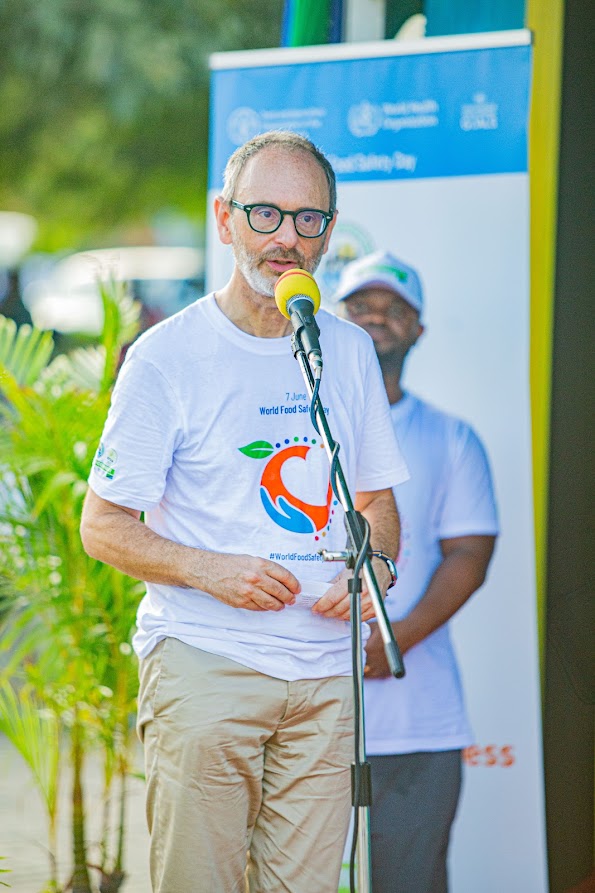
H.E. Manfredo Fanti, Ambassador of the European Union to Tanzania and the East African Community.
The partnership recognizes that safe and sustainable food systems are fundamental to achieving food security, eliminating hunger, and promoting public health. The EU ‘Farm to Fork’ strategy seeks to ensure a high level of safety at all stages of the production and distribution process for all food products marketed, which is in line with the country’s objectives. In addition, the joint initiative between the Government, FAO, and the EU on the #lisheboranimtaji awareness campaign aims to raise awareness of the population on the close link between nutrition and trade.
Mr. Charles Tulahi, Assistant FAO Representative in Tanzania emphasized that: “Food safety is everyone’s business, and the Food and Agriculture Organization of the United Nations (FAO) and the World Health Organization (WHO) play a leading role in setting international food standards to protect the health of consumers and ensure fair practices in the food trade. However, collaboration is needed at many levels, across sectors within a government, and across borders when combating food safety threats globally.”

Mr. Charles Tulahi, Assistant FAO Representative in Tanzania.
“Furthermore,” he said, “there is a need to promote agriculture and food systems and foster multi-sectoral collaboration among public health, animal health agriculture, and other sectors. Everyone involved in agri-food systems, from farms to the fork needs to adhere to good post-harvest management practices that help to retain nutritional value and food safety while reducing food losses.”
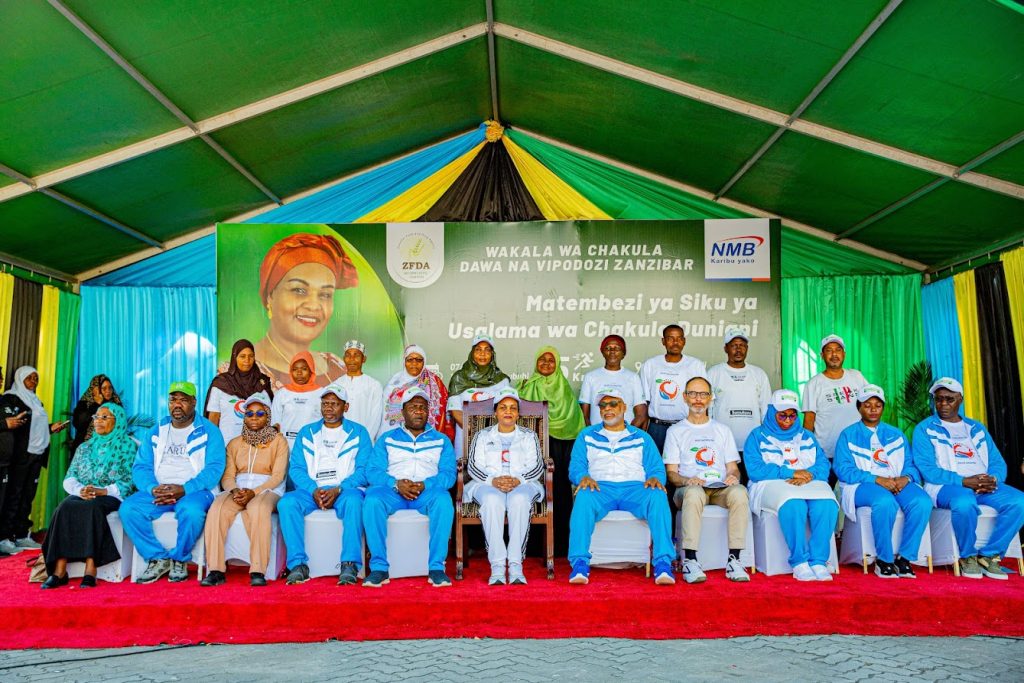
More Information:
FAO, the Food and Agriculture Organization of the United Nations, works in collaboration with the government of the United Republic of Tanzania in the development and implementation of the country’s policies, strategies, and programmes in agriculture, food and nutrition security, One Health, rural development, and climate resilience. Victor.Mapile@fao.org
The Delegation of the European Union (EU) to Tanzania and the East African Community is a key actor in the relations between the European Union (EU) and Tanzania as well as the East African Community (EAC). The EU is a longstanding partner of Tanzania in sustainable agriculture, food, and nutrition security.
The EU funds AGRI-CONNECT, a 100 M EURO programme that focuses on the development of horticulture, coffee, and tea value chains. In line with the EU “Farm to Fork” strategy, the programme adopts a holistic approach, starting from improved production in the farms up to the final products reaching the market and the consumers, while taking care of the health aspects as well as the need to protect the environment. Susanne.MBISE@eeas.europa.eu
